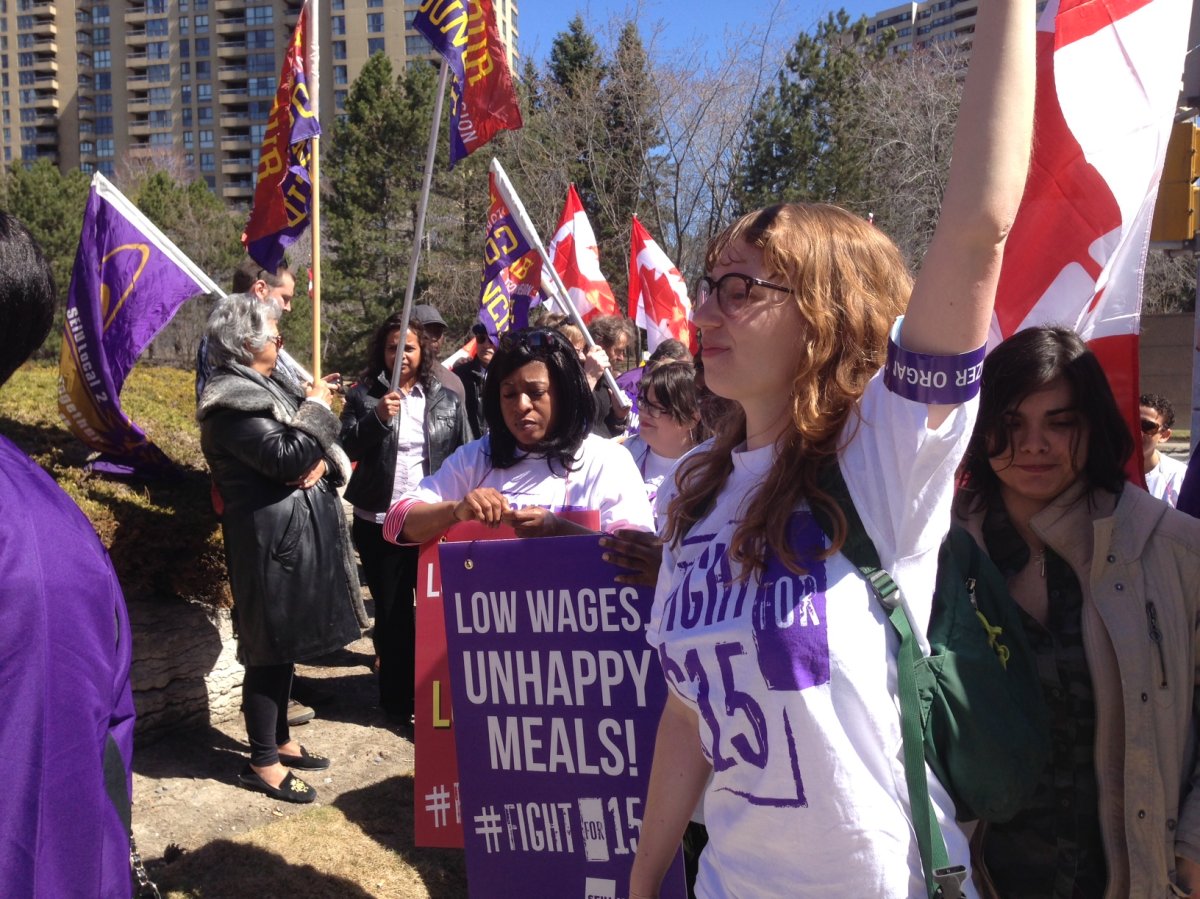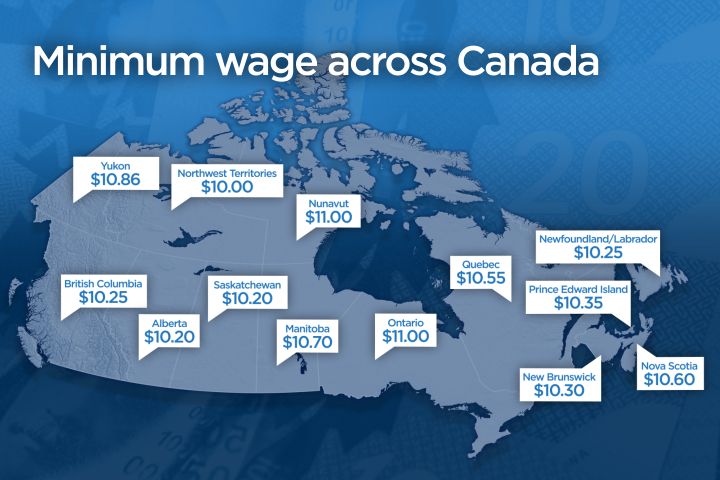Alberta’s new NDP government has promised to raise the province’s minimum wage to $15 an hour by 2018 – a huge increase over the current rate of $10.20. The raise would give the province the highest minimum wage in Canada by far.

Living on the minimum wage isn’t easy. While it’s true that many minimum-wage earners are very young and may be relying on their parents for necessities like shelter, it can be difficult to support yourself with a minimum wage job in many parts of Canada – at least if you look at the numbers.
The “Market Basket Measure” is an amount that Statistics Canada says represents “the cost of a specified basket of goods and services representing a modest, basic standard of living.” It includes things like shelter, food, transportation and some goods like footwear and clothing and is often used to study low income levels in Canadian cities.
According to Statistics Canada, achieving that basic standard of living cost $20,164 per year for a single person living in Calgary in 2012 (in 2015 dollars). It cost $20,290 for that same person in Vancouver, and $20,675 in Toronto. Keep in mind that this is a basic standard of living – the average rent for a bachelor apartment in Vancouver was $902 per month last October, according to the Canada Mortgage and Housing Corporation.
Working full-time at Alberta’s current minimum wage would earn the Calgarian $1,039 less in gross pay over the year than they would need to spend to achieve a basic standard of living. The gap is even bigger in Vancouver: someone making B.C.’s current minimum wage of $10.25 an hour would come up $1,071 short, even if they worked full-time. The place with the biggest difference between minimum wage earnings and Statistics Canada’s standard is small-town Newfoundland.

Get weekly money news
But, there are some places in Canada where gross income earned through a full-time minimum wage job would put you over the Market Basket Measure threshold: almost anywhere in Quebec, parts of the Maritimes, Ottawa, Hamilton, and Winnipeg for example. A person earning minimum wage in Edmonton might have just enough to reach that line.
It’s important to note that lots of minimum wage earners are not working full-time: just 41 per cent of them in 2013, according to Statistics Canada. And, of course, they may be receiving other sources of income, such as government transfers, and paying things like union dues or health deductions on their paycheque, so this isn’t a perfect measure. It’s looking at gross wages, nothing else.
But what kind of difference would a $15 minimum wage make in Alberta? A big one, if living costs remained the same. That Calgarian who was earning much less than the threshold would suddenly find him or herself about $3,200 above it. There might be other economic effects of raising the minimum wage though, such as job losses, say some business owners, particularly if it’s done too fast.
Find out how minimum wage compares to expenses in the table below:
On mobile? View the Google spreadsheet on a separate page.
If Alberta raised its minimum wage to $15 an hour, it would look more like this:
On mobile? View the Google spreadsheet on a separate page.
How we calculated this:
Statistics Canada’s 2012 MBM for a single-person household was given in 2011 dollars, then adjusted for inflation to 2015 dollars. Then, minimum wage gross earnings were calculated using each province’s current minimum wage, assuming that people work 37.5 hours a week, 50 weeks a year. Then, we subtracted the MBM from the total earnings.
Note that minimum wage earnings are gross wage earnings only and don’t include taxes or deductions. They also don’t include other possible sources of income, such as government transfers.



Comments